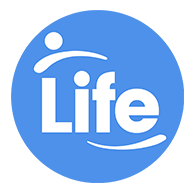Personalized Oncology Dominates Market Growth; Targeted Therapies and Companion Diagnostics Redefine Cancer Treatment Efficacy
Cancer care is at the forefront of personalized medicine adoption, with targeted therapies and companion diagnostics (CDx) transforming treatment outcomes. Traditional chemotherapy, which affects both healthy and cancerous cells, is being replaced by drugs designed to attack specific genetic mutations, drastically reducing side effects and improving survival rates. The personalized oncology segment now accounts for 35% of the global personalized medicine market, a share projected to rise to 45% by 2028, according to industry estimates.
Key to this growth are CDx tests that identify patients eligible for targeted therapies. For example, Pfizer’s Keytruda (pembrolizumab) uses a CDx test to detect PD-L1 expression, guiding its use in lung, breast, and colorectal cancers. Similarly, Novartis’ TKI therapies for chronic myeloid leukemia (CML) rely on BCRA mutant testing to ensure patients derive maximum benefit. These tests not only improve drug efficacy but also reduce waste; by targeting only responsive patients, pharma firms avoid costly failures in non-eligible populations. Liquid biopsies, too, are enhancing personalized oncology: GRAIL’s Galleri test detects 50 cancer types via ctDNA, enabling early, non-invasive diagnosis tailored to individual risk profiles.
The market’s focus on oncology is driven by high unmet needs. Over 19 million new cancer cases are diagnosed annually, with many patients failing to respond to standard treatments. Personalized therapies, like CAR-T cell treatments, have shown remarkable success; Novartis’ Kymriah achieved a 50% remission rate in pediatric leukemia, compared to 30% for traditional chemo. Pharmaceutical companies are investing aggressively: Roche spent $10 billion on oncology R&D in 2022, with 70% allocated to personalized therapies. To assess the size of the personalized oncology market, leading CDx and drug pairs, and clinical trial pipelines, the Personalized Medicine Market oncology applications report provides critical data, including regional demand and revenue projections.
Challenges persist, including the high cost of CDx tests and limited access to advanced therapies in low-income countries. Additionally, tumor heterogeneity—where mutations vary within a single patient’s cancer—can render targeted therapies ineffective over time. However, innovations like multi-omics profiling (combining genomics, proteomics, and metabolomics) and adaptive clinical trials are addressing these issues, ensuring therapies remain effective as tumors evolve. As personalized oncology matures, it will continue to dominate the personalized medicine market, offering hope for millions of cancer patients worldwide.
- Art
- Education et Formation
- Crafts
- Sciences et Technologies
- Economie
- Politique
- Actualité
- Littérature
- Divertissement
- Histoire
- Health
- Actualité
- Shopping & Commerce
- Music
- Agriculture & élevage
- Voyage et Evènementiel
- Beauté & esthétique
- Religion
- Festival
- Sports
- Fête
- Musique
- Autres



